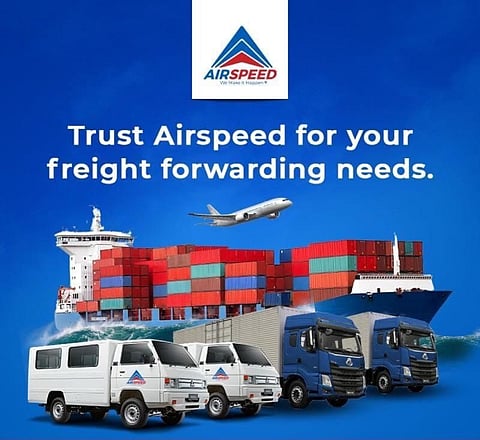
- NEWS
- the EDIT
- COMMENTARY
- BUSINESS
- LIFE
- SHOW
- ACTION
- GLOBAL GOALS
- SNAPS
- DYARYO TIRADA
- MORE

Express courier company Airspeed has urged the government to streamline its regulation of the logistics industry to make transactions with various agencies and paperwork less costly and time-consuming for players.
In a television interview on Wednesday, Airspeed chairperson and president Rosemarie Rafael said domestic logistic players have to deal with the Department of Transportation if they will be delivering parcels using airlines and land transportation, and separately deal with the Department of Trade and Industry for sea cargo.
"Airfreight is regulated by the DoTr, sea freight is under the DTI, then the Bureau of Customs clearance is under the Department of Finance," according to Rafael.
She suggested that consolidation and pick-up of parcels and documents be done in one location or logistic hub.
Rafael also complained of local government units' own regulations that they have been enduring for the past years.
"We want the government to formulate a roadmap in the industry. I know the President and our agencies wanted the Philippines to be a logistic hub, yet there are things that we can't really work on to become one," she added.
Hurdles
Being an archipelagic country, Rafael said costly logistics will remain a problem for forwarders because of the lack of interconnectivity among regions and islands, which should be the main focus of the government.
"As you know, we have more than 7,000 islands and that remains a challenge, especially for domestic freight forwarders. For us, to be able to deliver anything, it will be too costly as there are times that we will airfreight the item, and from airfreight, we will handle it by sea freight, and sometimes, by land. Sometimes, especially for the last mile delivery or delivering a parcel to the mountain, we don't have any other means of transportation except the use of a carabao to deliver it there," she said.
Rafael said this is the very reason why the cost for the domestic logistic industry remains high, compared to other countries in the Southeast Asian region.
"Delivering something from Manila to Hong Kong is cheaper than sending a delivery from Manila to Mindanao. Indeed, infrastructure is one of the most problematic factors that affect the logistics industry," Rafael said. "Another thing is that we do not have enough capacity because the timing of the shipping companies is basically not enough. Our fuel is so expensive, especially when you will use a Ro-Ro. These are the things that the sector is looking at, in how to lower the cost of transportation," she added.
